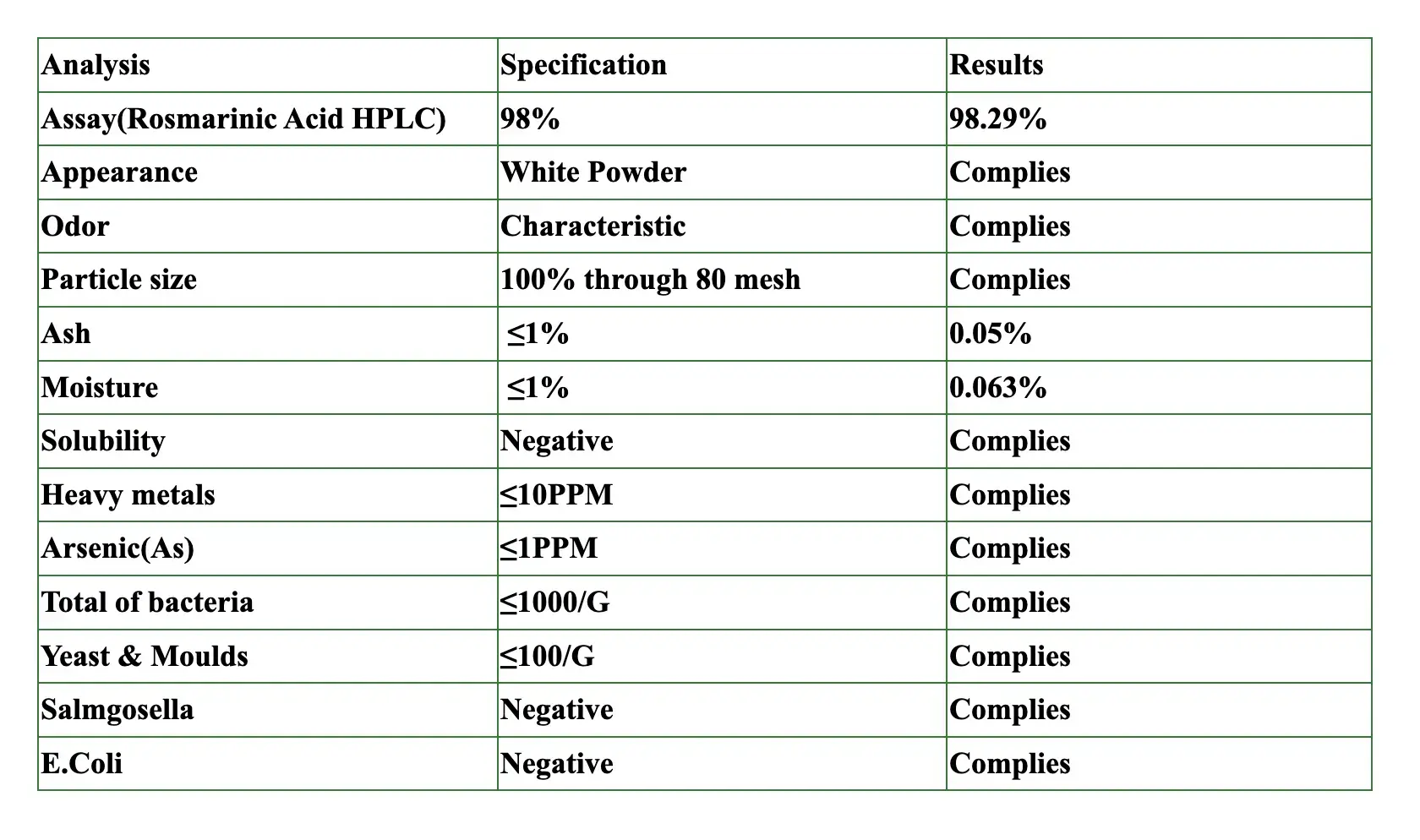Sibutramine hydrochloride powder represents a significant pharmaceutical compound that has garnered attention in the medical community for its unique approach to weight management. Understanding its mechanism of action provides valuable insights into how this compound interacts with neurochemical pathways to influence appetite and metabolic processes. This comprehensive analysis explores the intricate biological processes through which sibutramine hydrochloride exerts its therapeutic effects, examining its molecular interactions and physiological implications.

How Does Sibutramine Hydrochloride Powder Affect Neurotransmitter Reuptake?
Serotonin Reuptake Inhibition Mechanism
Sibutramine hydrochloride powder primarily functions as a selective serotonin and norepinephrine reuptake inhibitor, fundamentally altering neurotransmitter availability in synaptic clefts. The compound demonstrates high affinity for serotonin transporter proteins, effectively blocking the reabsorption of serotonin into presynaptic neurons. This mechanism results in increased serotonin concentrations within synaptic spaces, particularly in brain regions associated with appetite regulation and mood control. The enhanced serotonergic activity contributes to feelings of satiety and reduced food intake, making sibutramine hydrochloride powder an effective tool for weight management interventions. Clinical studies have demonstrated that this selective inhibition occurs within therapeutic dosage ranges, providing sustained neurotransmitter elevation without significant off-target effects.
Norepinephrine Pathway Modulation
The norepinephrine reuptake inhibition properties of sibutramine hydrochloride powder contribute significantly to its overall therapeutic profile. By preventing norepinephrine reabsorption, the compound maintains elevated levels of this crucial neurotransmitter in sympathetic nervous system pathways. This elevation enhances thermogenesis and increases energy expenditure, complementing the appetite-suppressing effects mediated through serotonin pathways. The dual-action mechanism involving both serotonin and norepinephrine systems creates a synergistic effect that addresses multiple aspects of weight regulation. Research indicates that sibutramine hydrochloride powder achieves this norepinephrine modulation through specific binding interactions with transporter proteins, demonstrating selectivity that minimizes interference with other neurotransmitter systems while maximizing therapeutic efficacy.

Dopamine System Interactions
Although primarily targeting serotonin and norepinephrine pathways, sibutramine hydrochloride powder also exhibits modest interactions with dopamine reuptake mechanisms. These interactions, while less pronounced than its effects on other neurotransmitter systems, contribute to the compound's overall pharmacological profile. The dopamine system involvement may influence reward pathways associated with food consumption, potentially reducing the hedonic aspects of eating behaviors. This multifaceted approach to neurotransmitter modulation demonstrates the sophisticated mechanism through which sibutramine hydrochloride powder addresses complex metabolic and behavioral patterns. The compound's ability to simultaneously target multiple neurotransmitter systems while maintaining selectivity represents an advanced approach to pharmaceutical intervention in weight management protocols.
What Are the Metabolic Effects of Sibutramine Hydrochloride Powder?
Thermogenesis Enhancement
Sibutramine hydrochloride powder significantly influences metabolic rate through its effects on thermogenesis, the process by which the body generates heat and burns calories. The compound's action on norepinephrine pathways activates brown adipose tissue, increasing energy expenditure even during rest periods. This thermogenic effect represents a crucial component of the weight loss mechanism, as it addresses the metabolic adaptation that often occurs during caloric restriction. Clinical investigations have shown that sibutramine hydrochloride powder can increase resting metabolic rate by approximately 5-10%, providing sustained energy expenditure benefits throughout treatment periods. The enhanced thermogenesis occurs through activation of uncoupling proteins in mitochondria, leading to increased heat production and caloric burning that complements the appetite-suppressing effects of the compound.
Lipid Metabolism Modulation
The influence of sibutramine hydrochloride powder on lipid metabolism represents another important aspect of its mechanism of action. The compound enhances lipolysis, the breakdown of stored fat tissues, through its effects on adrenergic signaling pathways. This process involves the activation of hormone-sensitive lipase, an enzyme crucial for mobilizing fatty acids from adipose tissue. The enhanced fat utilization provides energy for metabolic processes while reducing overall body fat stores. Studies have demonstrated that sibutramine hydrochloride powder treatment leads to preferential reduction in visceral adipose tissue, which is associated with improved metabolic health markers. The compound's ability to shift metabolic fuel utilization toward fat oxidation creates favorable conditions for sustained weight loss and improved body composition.
Insulin Sensitivity Improvements
Sibutramine hydrochloride powder demonstrates beneficial effects on insulin sensitivity, an important metabolic parameter that influences glucose utilization and fat storage. The compound's weight loss effects contribute to improved insulin receptor function and enhanced glucose uptake by peripheral tissues. This improvement in insulin sensitivity occurs through multiple mechanisms, including reduced adipose tissue inflammation and decreased secretion of adipokines that interfere with insulin signaling. Research has shown that treatment with sibutramine hydrochloride powder can lead to significant improvements in glucose tolerance and hemoglobin A1c levels in individuals with metabolic dysfunction. The enhanced insulin sensitivity creates a positive feedback loop that supports continued weight loss and metabolic improvement, making the compound particularly valuable for individuals with obesity-related metabolic complications.
How Long Does Sibutramine Hydrochloride Powder Take to Show Effects?
Onset of Appetite Suppression
The appetite-suppressing effects of sibutramine hydrochloride powder typically begin to manifest within the first few days of treatment, with peak effects occurring after 2-4 weeks of consistent administration. The initial response involves rapid neurotransmitter modulation, leading to decreased hunger sensations and reduced food intake frequency. Individual responses may vary based on factors such as metabolism, body composition, and concurrent medications, but most patients experience noticeable appetite changes within the first week. The gradual onset allows for physiological adaptation to the neurochemical changes induced by sibutramine hydrochloride powder, minimizing potential adjustment difficulties. Clinical monitoring during this initial period helps ensure optimal dosing and identifies any necessary modifications to treatment protocols for maximum therapeutic benefit.
Weight Loss Timeline
Significant weight loss with sibutramine hydrochloride powder typically becomes apparent after 4-6 weeks of treatment, with continued progress throughout the treatment period. The initial weight loss often includes both fat tissue reduction and some water weight loss, followed by sustained fat loss as metabolic adaptations take effect. Most clinical studies report meaningful weight reduction of 5-10% of initial body weight within 6 months of treatment with sibutramine hydrochloride powder. The weight loss pattern tends to be most rapid during the first 3 months, with continued but slower progress thereafter. Long-term studies have shown that maintenance of weight loss can continue for extended periods when sibutramine hydrochloride powder is used as part of comprehensive lifestyle modification programs.
Metabolic Parameter Changes
Changes in metabolic parameters following sibutramine hydrochloride powder treatment follow a predictable timeline, with different measures improving at various rates. Blood pressure and heart rate changes may occur within days of treatment initiation, requiring careful monitoring throughout the treatment period. Lipid profile improvements, including reductions in triglycerides and LDL cholesterol, typically become apparent after 6-8 weeks of consistent treatment. Glucose metabolism improvements, including enhanced insulin sensitivity and reduced fasting glucose levels, may take 8-12 weeks to fully manifest. These metabolic improvements with sibutramine hydrochloride powder often continue to develop throughout the treatment period, with maximum benefits typically achieved after 3-6 months of therapy. Regular laboratory monitoring helps track these changes and ensures optimal therapeutic outcomes.

Conclusion
Sibutramine hydrochloride powder demonstrates a sophisticated mechanism of action through dual neurotransmitter reuptake inhibition, targeting both serotonin and norepinephrine pathways to achieve comprehensive weight management effects. Its multifaceted approach addresses appetite regulation, metabolic enhancement, and energy expenditure, providing a robust therapeutic framework for obesity treatment. The compound's ability to produce sustained weight loss while improving metabolic parameters makes it a valuable pharmaceutical option when used appropriately under medical supervision.
Guangzhou Jianbei Biotechnology Co., Ltd. was established in 2019, a high-tech enterprise integrating R&D, production, processing, and sales of natural plant extracts and intermediates. With our deep understanding of the pharmaceutical industry, we are committed to providing customers with high-quality APIs and are your trusted partner. If you have any needs, please contact us: h33727868@gmail.com.
References
1. Arterburn, D.E., Crane, P.K., Veenstra, D.L. (2004). The efficacy and safety of sibutramine for weight loss: a systematic review. Archives of Internal Medicine, 164(9), 994-1003.
2. Bray, G.A., Blackburn, G.L., Ferguson, J.M., Greenway, F.L., Jain, A.K., Mendel, C.M., Ryan, D.H. (1999). Sibutramine produces dose-related weight loss. Obesity Research, 7(2), 189-198.
3. Heal, D.J., Aspley, S., Prow, M.R., Jackson, H.C., Martin, K.F., Cheetham, S.C. (1998). Sibutramine: a novel anti-obesity drug. A review of the pharmacological evidence to differentiate it from d-amphetamine and d-fenfluramine. International Journal of Obesity, 22(4), S18-S28.
4. McMahon, F.G., Fujioka, K., Singh, B.N., Mendel, C.M., Rowe, E., Rolston, K., Johnson, F. (2000). Efficacy and safety of sibutramine in obese white and African American patients with hypertension. Archives of Internal Medicine, 160(9), 1371-1379.
5. Rolls, B.J., Shide, D.J., Thorwart, M.L., Ulbrecht, J.S. (1998). Sibutramine reduces food intake in non-dieting women with obesity. Obesity Research, 6(1), 1-11.
6. Weintraub, M., Rubio, A., Golik, A., Byrnes, L., Scheinbaum, M.L. (1991). Sibutramine in weight control: a dose-ranging, efficacy study. Clinical Pharmacology & Therapeutics, 50(3), 330-337.










